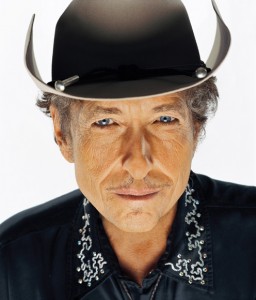Bob Dylan turns 70
When Bob Dylan was 19, he wanted to sound like he was 70.
Today, he reaches that milestone without it seeming like a millstone.
To ongoing generations, he still stands as a world-worn wellspring of wit, wisdom, whimsy and wonder. Just like the folk-blues masters he admired so deeply and emulated so earnestly while searching for his own musical, spiritual, emotional and very-human voice.
Dylan (one of the most transformative, controversial and iconic cultural and creative forces of the American 20th century) remains an active and vital post-millennial artist and musical voice.
Nobody in American popular music has produced as much high-quality original material over such an extended period of time. Not even close.
He is one of the most exhaustively examined cultural figures ever. As musician, enfant terrible, artist, filmmaker, author, radio host, pitchman, alleged proselytizer, devoted musicologist, visionary, spiritual muse, family man, bad boy, ’60s ‘protest’ singer, recluse and seemingly tireless traveler.
He’s not done yet. This year, he signed a multi-book publishing contract. He’s still on the road.
That’s why Dylan’s 70th birthday is being treated as a cultural event, not a private occasion, which he’d probably prefer.
Montreal. “I expect to be playing music endlessly” – Bob Dylan said in 1968, at age 27, on an enforced hiatus from a near-fatal motorcycle accident suffered two years earlier. “So this period of time isn’t important to me.” And the man whose anthem The Times They Are a – Changin’ defined a generation promised: “I’ll have different material – so there’ll be a change there.”
While most performers who aspire to the big time desperately cling to the same formula, Dylan’s one constant is constant change.
But you turn 70 only once. Tuesday’s that day for Dylan, so it’s as good a time as any to take stock, briefly here, of one of the greatest of all artistic lives.
Born Robert Allen Zimmerman in Duluth, Minn., he said in 1986: “I’m only Bob Dylan when I have to be.” And, in a huge understatement: “I am my words,” including Blowin’ in the Wind, Like a Rolling Stone, Mr. Tambourine Man, up to recent gems like Mississippi. The man who fundamentally changed songwriting has penned popular music’s most kaleidoscopic streams of consciousness and also its most plangent paeans.
His career is filled with seeming paradoxes. He transcended folk music, yet followed in its noble traditions, often at the same time.
The man who wrote the bluntest and most vindictive songs about human relationships has also written the most hauntingly sensitive and lyrical – particularly recently.
Picture the cyberspace equivalent of those huge novelty Hallmark cards you get passed sometimes in the office and asked to annotate with your hastily-composed good wishes for your colleague’s birthday or imminent departure or whatever, and you’ll get some idea of the number of tributes flying around today in honour of the newly septuagenarian Bobmeister.
Among the musicians to doff their caps in the birthday boy’s direction are Bruce Springsteen – who, as no stranger to overstatement, called Dylan ‘the father of [his] country’ (could we soon see Dylan’s face hewn alongside those of his great political forefathers at Mount Rushmore?); and Red Hot Chili Peppers frontman Anthony Kiedis, who got somewhat bewilderingly lost in metaphor: “Bob Dylan is a wave; he’s a moving body of energy built of melodies, words, rhythms, ideas and attitudes that have swept over the world since the year of my birth” (his birth? But I thought we were talking about Dylan’s birthday? Hey, Kiedis – stop acting like that annoying friend with the same birthday as you who always turns up to hijack your celebrations).
Bono, somewhat inevitably, has also piled in to wish Dylan well, and in so doing to re-emphasise his own importance. “All my life” – he said, “Bob Dylan has been there for me.” Bono is also one of a number of musicians to pay longer tribute to the author of Mr Tambourine Man in this month’s Rolling Stone magazine. Choosing, appropriately, the 1965 track Like A Rolling Stone as his all-time favourite, Bono calls his hero ‘our own Willy Shakespeare in a polka-dot shirt. It’s why every songwriter after him carries his baggage and why this lowly Irish bard would proudly carry his luggage. Any day.’ Bono obediently ferrying Dylan’s Louis Vuittons to a waiting car? Now there’s an image to conjure with.
Also in Rolling Stone, Marcus Mumford of Mumford and Sons helpfully reminds us that “he [Dylan, in case you thought he was talking about himself] just keeps going, keeps churning out these amazing songs. That’s how you do it, man”; while Sinead O’Connor turns an envious eye to Dylan’s devil-may-care attitude. “The way he delivers the words is fantastic” – she tells the magazine. “This voice just snarling, not bothering to hide anything. The rest of us are all busy trying to be nice people, when actually we’re f***ing bastards underneath it all – whereas he was quite comfortable letting the bastard hang out.” It’s perhaps not quite the sort of thing you’d want to see written in that birthday card, but there we are.
